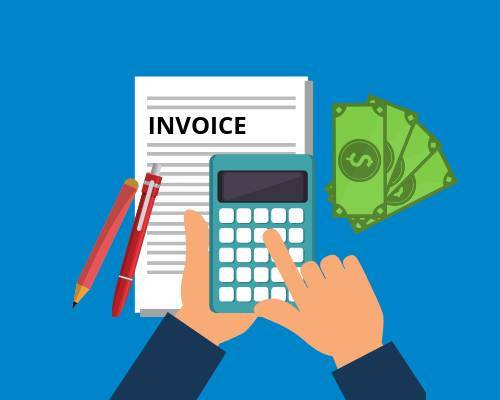Life as a start up business is tough. Of the 200,000 new businesses that begin their journey every year in the UK, around 20% will fail in their first year and 60% will go bust after three. There are many reasons why this might happen, but outside of a business finding there is a lack of market or need for their services, the primary most reason for failure lies in cash flow problems.
Cash flow is the lifeblood of any business, so if it becomes stunted in any way, trouble starts brewing quickly. Because of this, many small businesses seek external financing solutions to address their issues. If your main problem as a business lies in the unfortunately common phenomenon of late payments sitting on your sales ledger, invoice financing could be the answer you’re looking for. But what is invoice financing, and how can it address your late payment woes?
What is invoice financing?
Invoice financing allows you to “unlock” money that’s trapped within your customer’s unpaid invoices. An invoice finance provider will offer you an asset-based loan based on your outstanding invoices found on your debtor book and sales ledger. So, if you have £50,000 worth of unpaid work sat waiting to be made good on, invoice financing will give you access to the bulk of that £50,000 now before the customer(s) in question have actually paid.
Having access to this otherwise unreachable money within your business naturally comes with its share of advantages, but there are also some points for consideration that mean it won’t be suitable for every business, but more on that below.
Addressing a common problem
As an individual, the idea of late payments, particularly for important services, seems like a completely alien concept. After all, on an personal level, we’re heavily penalised for being late or defaulting on a key payment, and with most of us desperate to protect our credit scores, a late payment issue is a once in a blue moon occurrence for the majority of people.
Unfortunately, for the business world, and particularly the small business world, things are a little different. With suppliers keen to protect relationships with buyers, late payments are effectively overlooked and therefore commonplace within commerce and industry. According to Bacs software provider Bottomline, 92% of financial decision makers admit to having paid suppliers late, meaning less than one in ten business always pay what they owe on time.
Thus, as a start-up, you’re likely to face an all too familiar issue with invoice chasing and therefore your cashflow. This is why invoice financing has become so popular both in the UK and globally – it’s a solution to a very real commercial issue.
Is invoice financing a good idea for your business?
The big question, then – is invoice financing right for you? On the face of things, invoice financing seems like a good idea for any business with a clogged-up sales ledger, but there are some points of nuance to think about, which are best broken down in to a quick pros and cons list:
The positives of invoice financing are:
- You don’t need to offer any assets as security.
- The invoice finance provider effectively takes the debts in question “off your hands”, allowing you to focus on other areas of the business.
- You have fast access to cash you otherwise wouldn’t, allowing you actively pursue growth targets and other goals.
- There’s no limit to what you can borrow other than that of your own invoice total.
The points of consideration for invoice financing are:
- There are fees and costs associated with the process, meaning you won’t recover the full amount of your invoices as you would if you pursued them organically.
- Depending on your agreement, invoice financing is not easy to conceal from your customers. If your customers know you are financing invoices, it could affect your working relationship going forward.
- Exiting an invoice finance agreement can be a difficult process, if for whatever reason you do wish to withdraw.
- It will change some of the core ways in which your business operates – an aspect which you need to be prepared for in organisational terms.
In summary, invoice financing works for a lot of businesses because of the financial and administrative weight it can lift from the shoulders of your organisation. There is, however, a risk attached to how the process can affect supplier-buyer relationships and your absolute margin – two factors which a lot of start ups trying to establish themselves need to consider.
In a world where late payments are effectively standard, however, the value of invoice financing should not be underestimated. If your sales ledger is stagnating, it could well be the solution for you.

Founder Dinis Guarda
IntelligentHQ Your New Business Network.
IntelligentHQ is a Business network and an expert source for finance, capital markets and intelligence for thousands of global business professionals, startups, and companies.
We exist at the point of intersection between technology, social media, finance and innovation.
IntelligentHQ leverages innovation and scale of social digital technology, analytics, news, and distribution to create an unparalleled, full digital medium and social business networks spectrum.
IntelligentHQ is working hard, to become a trusted, and indispensable source of business news and analytics, within financial services and its associated supply chains and ecosystems






























